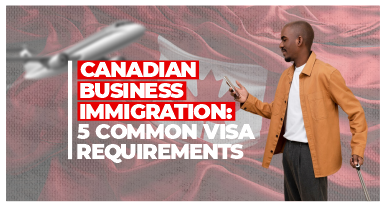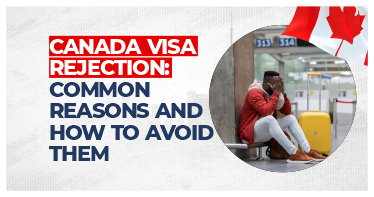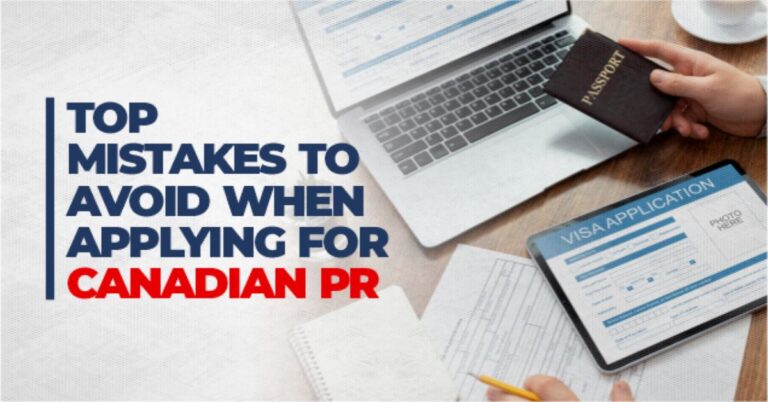In the complex process of Canadian immigration, one significant hurdle that applicants might face is the issuance of a procedural fairness letter.
On many occasions, if Immigration, Refugees, and Citizenship Canada – IRCC detects issues in your immigration application, they may send you a Procedural Fairness Letter (PFL). This correspondence from IRCC allows you, as the principal applicant, to clarify or respond to any concerns relevant to your application.
Understanding what this means for your application and how to respond effectively is essential.
In this article, we’ll be detailing all you need to know about a procedural fairness letter and how you should respond, but before we dive deeper, let’s explain what a procedural fairness letter is.
What is a Procedural Fairness Letter?
A procedural fairness letter is an email or letter sent by an immigration officer to allow a visa applicant to respond to a concern about the documents you submitted in your application. The officer may give a specific amount of time to reply to the letter, in most cases, 7 or 30 days.
A procedural fairness letter is more than just a formality in the Canadian immigration process. It is rooted in the principles of natural justice and is issued when an immigration officer has concerns that could lead to the refusal of your application. This letter is your chance to address any issues and make your case.
Why Procedural fairness Letter is important to your application
The issuance of a procedural fairness letter signifies a critical point in your application process. It’s an opportunity to correct misunderstandings, provide additional information, or clarify your situation. How you respond can significantly influence the officer’s final decision on your application.
This opportunity usually arrives in the form of a letter or email detailing the officer’s concerns about your case and provides a limited time for response, often around 30 days, but it can be as short as 7 or 10 days.
What should you do when you receive a Procedural Fairness Letter?
If you receive a procedural fairness letter, it’s crucial to act promptly but thoughtfully. Consulting with an immigration professional before responding is highly advisable. A hasty email response might harm your case; a well-considered reply is key to improving your chances. Do you want to quit guessing and have a professional handle your PFL? Contact us to get help
When responding to a Procedural Fairness Letter, you should include a comprehensive explanation and relevant supporting documents. Seeking legal assistance in such scenarios is strongly recommended. Our representatives are available to provide expert advice and support. Click here to learn how we can help with your Procedural fairness letter
Receiving and responding to a PFL requires careful assessment and a strategic response. This might involve providing additional documentation or acknowledging mistakes and demonstrating remorse. Consulting with a professional, such as a licensed immigration consultant or lawyer, is advisable in these situations. This is because PFLs often come with tight deadlines but in cases where you need more time or clarification, communicate with the officer to let them know why you may need an extension. You may also request your GCMS records and officer’s notes through an A-TIP request for further insights.
In conclusion, a procedural fairness letter is a critical matter in your immigration journey and can significantly impact future applications. Addressing it correctly is paramount.
If you’ve received a procedural fairness letter or need expert immigration services, contact Loft Immigration today. Our team is ready to provide you with the guidance and support you need to navigate your immigration process successfully. Reach out to us for tailored solutions and expert advice. Click the button below to learn how we can help with your Procedural fairness letter.
Frequently Asked Questions
- What is a procedural fairness letter in Canadian immigration?
Answer: A procedural fairness letter is a communication from Canadian immigration officials, outlining concerns regarding your application that could potentially lead to its refusal. It provides you with an opportunity to address these concerns.
- Why are procedural fairness letters issued?
Answer: These letters are issued based on the principles of natural justice and procedural fairness, allowing applicants a chance to respond to any concerns the immigration officer might have before making a final decision on the application.
- How should I respond to a procedural fairness letter?
Answer: It’s important to respond thoughtfully and comprehensively, addressing all concerns raised. Providing detailed explanations and supporting documents is crucial to a successful PFL response. Seeking professional guidance, like from Loft Immigration, is highly recommended.
- What is the typical timeframe for responding to these letters?
Answer: The timeframe can vary, usually around 30 days, but in some cases, it could be as short as 7 or 10 days. It’s important to check the specific deadline in your letter.
- Is a procedural fairness letter always a sign of a negative outcome?
Answer: Not necessarily. It’s an opportunity for you to clarify and provide additional information. With a well-crafted response, you can positively influence the officer’s decision.
- What happens if I do not respond to a procedural fairness letter?
Answer: Failing to respond can lead to a refusal of your application based on unaddressed concerns. Therefore, a timely and thorough response is essential.
- Can I request an extension to respond to the letter?
Answer: Yes, you can request an extension, but it’s not guaranteed. Communication with the immigration officer for clarity or additional time should be done promptly.
- Should I include new evidence in my response to the procedural fairness letter?
Answer: Yes, if it’s relevant and addresses the concerns raised in the letter. New evidence can be crucial in clarifying your situation or strengthening your application.
- Can Loft Immigration help me with my procedural fairness letter?
Answer: Yes, Loft Immigration specializes in assisting clients with procedural fairness letters, offering expert guidance and support to craft effective responses.
Loft Immigration can provide expert advice on the best course of action, assist in gathering necessary documents, and help in drafting a compelling response to address the concerns raised by the immigration officer effectively.







